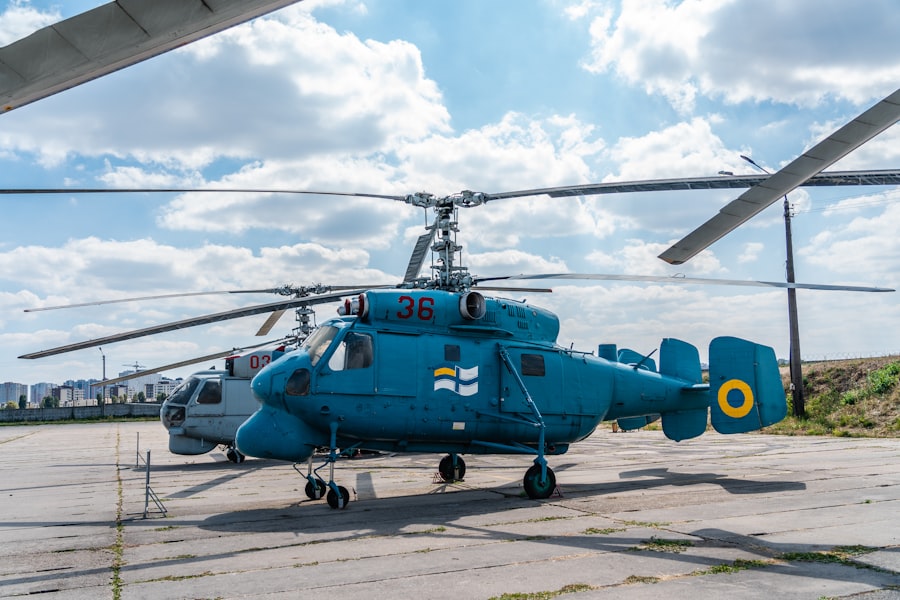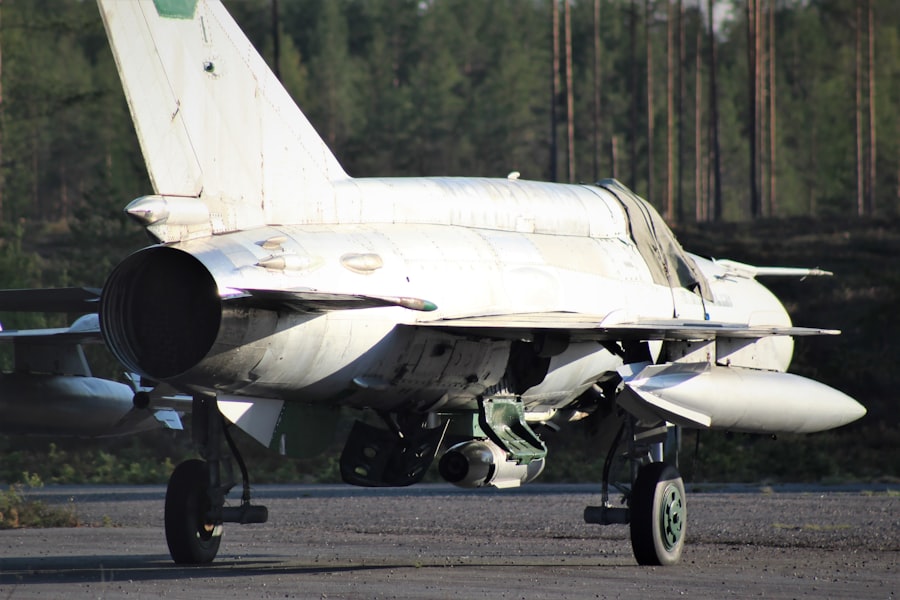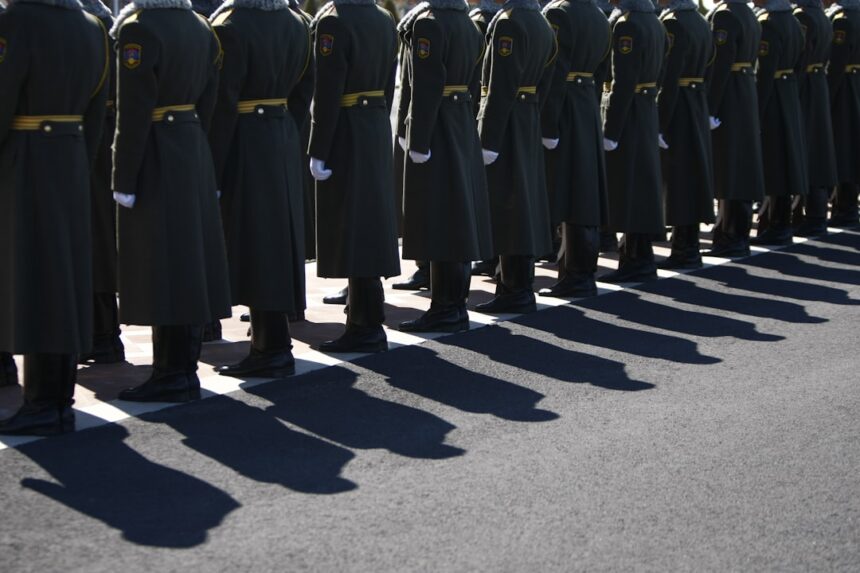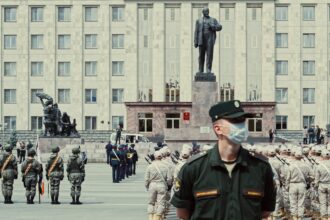The ramifications of military procurement fraud in Russia extend far beyond mere financial losses; they pose significant threats to national security and military readiness. When funds intended for the acquisition of essential military equipment are siphoned off through fraudulent practices, the consequences can be dire. The Russian military, which has been modernizing its forces in response to geopolitical tensions, finds itself hampered by a lack of operational capability.
This not only undermines the effectiveness of the armed forces but also erodes public trust in the government’s ability to manage defense resources effectively. Moreover, the impact of such fraud is felt across various sectors of society. As military budgets are diverted into the pockets of corrupt officials and contractors, the broader economy suffers.
Resources that could have been allocated to education, healthcare, or infrastructure development are instead wasted, leading to a decline in the overall quality of life for citizens. The perception of rampant corruption within the military procurement system can also foster disillusionment among the populace, further destabilizing the social fabric of the nation.
Key Takeaways
- Russian military procurement fraud has a significant impact on national security and the economy.
- The scale of the problem is extensive, with corruption and kickbacks being common in Russian military procurement.
- Organized crime plays a significant role in military procurement fraud in Russia, further exacerbating the issue.
- The implications for national security are severe, as compromised equipment and resources can weaken defense capabilities.
- Efforts to combat military procurement fraud in Russia are ongoing, but more transparency and accountability are needed to prevent fraud effectively.
The Scale of the Problem
The scale of military procurement fraud in Russia is staggering, with estimates suggesting that billions of dollars are lost each year due to corrupt practices. This pervasive issue is not limited to isolated incidents; rather, it is indicative of a systemic problem that has plagued the Russian military for decades. Reports indicate that a significant portion of defense contracts is awarded without proper oversight, creating an environment ripe for exploitation.
The lack of transparency in procurement processes allows unscrupulous individuals to manipulate contracts and inflate prices, resulting in substantial financial losses. Furthermore, the problem is exacerbated by a culture of impunity that shields corrupt officials from accountability. Investigations into procurement fraud often stall or are inadequately pursued, allowing those involved to continue their illicit activities with little fear of repercussions.
This cycle perpetuates a system where fraud becomes normalized, making it increasingly difficult to implement effective reforms. As a result, the scale of military procurement fraud not only threatens the integrity of the defense sector but also undermines the very foundations of governance in Russia.
Corruption and Kickbacks in Russian Military Procurement

Corruption and kickbacks are central components of military procurement fraud in Russia. The intricate web of relationships between government officials, military leaders, and private contractors creates numerous opportunities for illicit gain. In many cases, contracts are awarded based on personal connections rather than merit, leading to inflated costs and subpar products.
Kickbacks often become a standard practice, with contractors expected to provide a percentage of their profits back to officials who facilitated the deal. This not only distorts market dynamics but also incentivizes contractors to prioritize profit over quality. The consequences of such corruption are far-reaching.
When military units receive inferior equipment due to compromised procurement processes, their operational effectiveness is severely diminished. This can lead to catastrophic failures during training exercises or actual combat situations, endangering the lives of soldiers and compromising national security. Additionally, the prevalence of kickbacks fosters an environment where innovation and competition are stifled, as reputable companies may be discouraged from participating in a system that rewards dishonesty over excellence.
The Role of Organized Crime in Military Procurement Fraud
| Metrics | Data |
|---|---|
| Number of cases | 78 |
| Amount of money involved | 2.3 billion |
| Percentage of military procurement fraud involving organized crime | 42% |
| Types of organized crime involved | Drug cartels, mafia, terrorist organizations |
Organized crime plays a significant role in facilitating military procurement fraud in Russia. Criminal networks often infiltrate legitimate businesses involved in defense contracting, using intimidation and coercion to manipulate procurement processes. These groups may engage in various illicit activities, including extortion and bribery, to ensure that contracts are awarded to their affiliates.
The intersection of organized crime and military procurement creates a dangerous synergy that further entrenches corruption within the system. The involvement of organized crime not only complicates efforts to combat procurement fraud but also poses a direct threat to national security. When criminal organizations gain influence over military contracts, they can potentially access sensitive information and technology that could be exploited for nefarious purposes.
This infiltration undermines the integrity of the armed forces and raises concerns about loyalty and allegiance within the ranks. As organized crime continues to exploit vulnerabilities in the procurement system, the challenges facing Russian authorities become increasingly complex.
The Implications for National Security
The implications of military procurement fraud for national security are profound and multifaceted. As resources are misallocated and equipment quality deteriorates due to corrupt practices, the overall readiness of the Russian military is compromised. This decline in operational capability can have serious consequences in times of crisis or conflict, leaving the nation vulnerable to external threats.
Moreover, when military personnel lack confidence in their equipment and leadership due to corruption, morale suffers, further diminishing effectiveness on the battlefield. Additionally, procurement fraud can lead to strategic miscalculations by military planners. If decision-makers rely on inflated assessments of military capabilities based on fraudulent contracts, they may underestimate potential adversaries or overestimate their own strengths.
This disconnect between reality and perception can result in disastrous outcomes during military engagements. Ultimately, the erosion of trust within the military establishment and among the public can destabilize national security and hinder effective governance.
Efforts to Combat Military Procurement Fraud in Russia

In response to the pervasive issue of military procurement fraud, Russian authorities have initiated various efforts aimed at reforming the system. Legislative measures have been introduced to enhance transparency and accountability in defense contracting processes. These reforms seek to establish stricter oversight mechanisms and impose harsher penalties for those found guilty of corruption.
However, implementing these changes has proven challenging due to entrenched interests and resistance from powerful stakeholders within the military-industrial complex.
The introduction of digital platforms for contract management aims to streamline processes and reduce opportunities for manipulation.
By increasing transparency and allowing for greater public scrutiny, these initiatives hold promise for curbing corrupt practices. However, success hinges on political will and a commitment to genuine reform from those at the highest levels of government.
International Response to Russian Military Procurement Fraud
The international community has taken note of Russia’s struggles with military procurement fraud, particularly given its implications for global security dynamics. Various countries have expressed concern over the potential risks posed by a weakened Russian military due to corruption within its ranks. Diplomatic efforts have been made to encourage transparency and accountability in defense spending, with some nations advocating for collaborative initiatives aimed at addressing corruption on a broader scale.
Additionally, international organizations have sought to provide support for anti-corruption measures within Russia’s defense sector. By sharing best practices and offering technical assistance, these entities aim to bolster efforts to combat procurement fraud. However, geopolitical tensions often complicate these initiatives, as nations navigate their own interests while addressing issues related to corruption and governance.
The Role of Transparency and Accountability in Preventing Fraud
Transparency and accountability are critical components in preventing military procurement fraud in Russia. Establishing clear guidelines for contract management and ensuring that all transactions are subject to rigorous oversight can significantly reduce opportunities for corruption. By fostering an environment where information is readily accessible and decision-making processes are open to scrutiny, authorities can deter fraudulent activities and promote ethical behavior within the defense sector.
Moreover, cultivating a culture of accountability is essential for sustaining long-term reforms. When individuals understand that they will be held responsible for their actions—regardless of their position or connections—there is a greater likelihood that they will act with integrity. Encouraging whistleblowing and protecting those who expose corruption can further enhance accountability measures within the military procurement system.
Case Studies of Military Procurement Fraud in Russia
Several high-profile case studies illustrate the extent of military procurement fraud in Russia and its far-reaching consequences. One notable example involved a major defense contractor accused of inflating prices for aircraft components while delivering substandard products. Investigations revealed a network of kickbacks involving government officials who facilitated these fraudulent contracts.
The fallout from this scandal not only resulted in financial losses but also raised questions about the reliability of critical military assets.
Reports indicated that officials had colluded with contractors to secure contracts under false pretenses while diverting funds into personal accounts.
The resulting investigation exposed systemic corruption within the procurement process and led to calls for comprehensive reforms aimed at restoring integrity within the defense sector.
The Economic Costs of Military Procurement Fraud
The economic costs associated with military procurement fraud in Russia are staggering and multifaceted. Beyond direct financial losses incurred through inflated contracts and kickbacks, there are broader implications for economic stability and growth. When substantial resources are wasted on corrupt practices, opportunities for investment in critical infrastructure or social programs diminish significantly.
This misallocation not only hampers economic development but also exacerbates existing inequalities within society. Furthermore, the long-term effects of procurement fraud can deter foreign investment and undermine confidence in domestic industries. Investors are often wary of engaging with sectors plagued by corruption, fearing that their investments may be at risk due to unethical practices or unstable governance structures.
As a result, the economic landscape becomes increasingly challenging for legitimate businesses striving to operate within a fair market environment.
The Future of Russian Military Procurement Fraud and Its Potential Consequences
Looking ahead, the future of military procurement fraud in Russia remains uncertain but fraught with potential consequences. While there have been efforts toward reforming procurement processes, entrenched interests and systemic corruption pose significant challenges to meaningful change. Without sustained political will and public pressure for accountability, it is likely that fraudulent practices will continue to persist within the defense sector.
The potential consequences extend beyond immediate financial losses; they threaten national security and geopolitical stability as well. A weakened military due to corruption could embolden adversaries while undermining Russia’s position on the global stage. As such, addressing military procurement fraud is not merely an internal issue but one that carries implications for international relations and security dynamics worldwide.
In conclusion, tackling military procurement fraud in Russia requires a multifaceted approach that prioritizes transparency, accountability, and genuine reform efforts. Only through concerted action can authorities hope to restore integrity within the defense sector and safeguard national security against the threats posed by corruption.
In recent years, Russian military procurement has been plagued by numerous fraud cases, highlighting significant issues within the country’s defense sector. These cases often involve inflated contracts, embezzlement, and corruption, undermining the effectiveness and integrity of military operations. An insightful article discussing these challenges can be found on the War Room website, which delves into the intricacies of these procurement fraud cases and their implications for Russia’s military capabilities. For more detailed analysis, you can read the article by visiting this link.
WATCH NOW! 🎖️ Plot Twist: Russia’s Military Is Being Eaten Alive By Its Own Corruption
FAQs
What are Russian military procurement fraud cases?
Russian military procurement fraud cases refer to instances where individuals or organizations within Russia have been involved in fraudulent activities related to the procurement of military equipment, supplies, or services for the Russian armed forces.
What are some examples of Russian military procurement fraud cases?
Some examples of Russian military procurement fraud cases include the embezzlement of funds allocated for military contracts, the sale of substandard or counterfeit military equipment, and the manipulation of procurement processes to benefit certain individuals or companies.
How are Russian military procurement fraud cases investigated and prosecuted?
Russian military procurement fraud cases are typically investigated by law enforcement agencies such as the Russian Federal Security Service (FSB) or the Investigative Committee of Russia. If evidence of fraud is found, individuals or organizations involved may be prosecuted under Russian law.
What are the consequences of being involved in Russian military procurement fraud cases?
Individuals or organizations found guilty of involvement in Russian military procurement fraud cases may face severe consequences, including imprisonment, fines, and the confiscation of assets. Additionally, they may be barred from participating in future military procurement contracts.
What measures has the Russian government taken to address military procurement fraud?
The Russian government has taken various measures to address military procurement fraud, including implementing stricter oversight and auditing processes, increasing transparency in procurement procedures, and prosecuting individuals or organizations involved in fraudulent activities.




